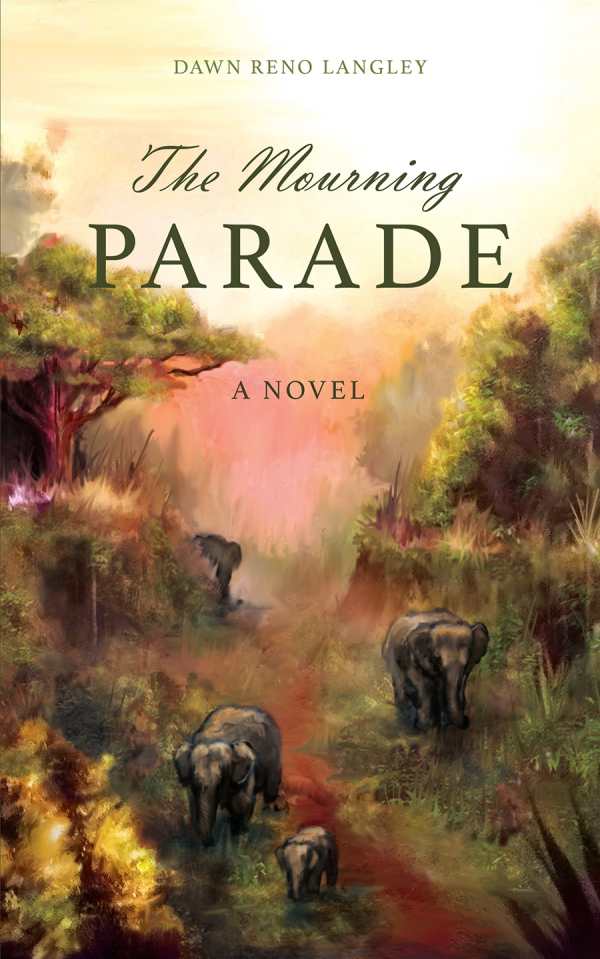The Mourning Parade
Well-crafted and moving, this is a novel in which settings and feelings are both vividly portrayed.
Grief, the seemingly impossible task of healing, and the bridge between animals and humans take center stage in Dawn Reno Langley’s well-crafted and moving The Mourning Parade.
Hoping to dull the pain of losing her two sons in a school shooting, divorced veterinarian Natalie DeAngelo volunteers for a one-year stint at an elephant sanctuary in rural Thailand. She has told no one of the tragedy in her past, and sees tending the endangered animals as an effort to put her skills to use while escaping her pain.
Challenges abound at the sanctuary. Natalie finds a ready-made enemy in staff veterinarian Peter Hatcher, whose dissertation she long ago negatively critiqued. Another challenge arises in the form of Sophie, a wounded and psychologically damaged elephant who will be put down if Natalie’s rehabilitation efforts fail.
A realistic and satisfying plot avoids saccharine clichés. Animals are not anthropomorphized, and the mountain jungle-land of Thailand is not painted as a paradisiacal Shangri-la.
As Natalie gets into the rhythm of the sanctuary, characters are introduced via realistic scenes and actions that reveal their distinct personalities. Particularly memorable are the sanctuary’s philanthropist and chief fund-raiser, Andrew Gordon; Gordon’s partner Mali, whose constant worry over her son’s political activities forms a bond between her and Natalie; and Sophie, the elephant who becomes Natalie’s special charge. The emerald vegetation and hot, humid climate of Thailand are vividly portrayed.
The slow progress of Natalie’s work with Sophie drives the plot and echoes Natalie’s own search for peace. The story is amplified by additional realistic plot threads, including tensions over funding and resource allocation, Natalie’s growing knowledge of elephant psychology and social behavior, her efforts to get the mahouts to handle the elephants without using hooked prodding poles, and the need to respect native Thais’ financial reliance on elephants as work animals. Natalie’s fragmented memories of her sons, too painful to be faced all at once, eventually coalesce to reveal her complete backstory.
Told with authority and fine craftsmanship, The Mourning Parade leaves an impression that lasts beyond its final page.
Reviewed by
Susan Waggoner
Disclosure: This article is not an endorsement, but a review. The publisher of this book provided free copies of the book to have their book reviewed by a professional reviewer. No fee was paid by the publisher for this review. Foreword Reviews only recommends books that we love. Foreword Magazine, Inc. is disclosing this in accordance with the Federal Trade Commission’s 16 CFR, Part 255.

